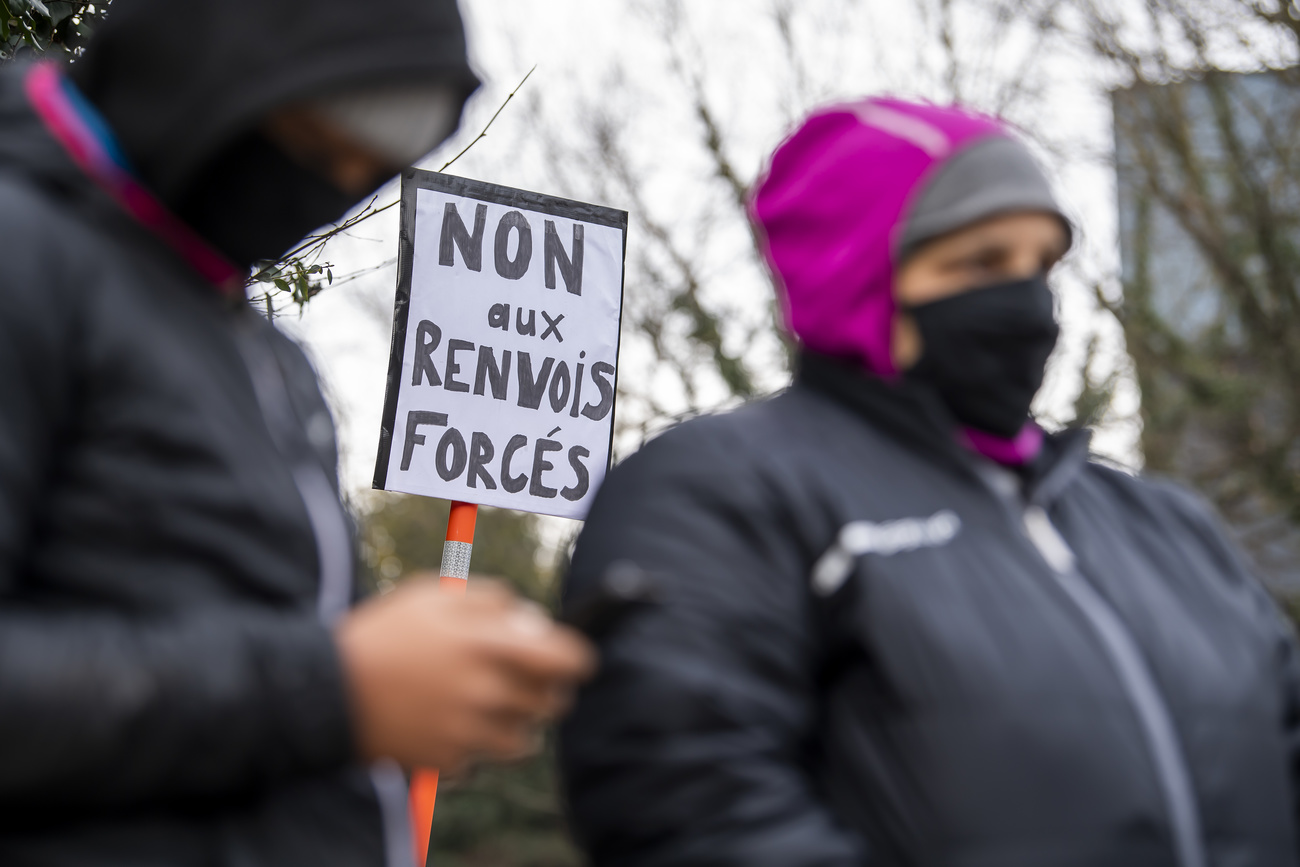
Special asylum flights sometimes carry only one deportee

Special flights for the deportation of rejected asylum-seekers are poorly utilised, according to a report in the NZZ am Sonntag. In five cases last year only one person to be deported was on the plane.
Twenty-four special flights for 115 rejected asylum-seekers took place last year, the paper revealed on SundayExternal link. The State Secretariat for Migration (SEM) confirmed, at the request of the Swiss News Agency Keystone-SDA, that the special flights were sometimes poorly utilised and carried just a single deportation.
As a rule, aircraft with space for 30-190 people were used for the special flights, the SEM said.
The NZZ am Sonntag, which had access to SEM figures, said that last year five planes took off with only one deportee on board.
Parliamentarians were not amused. “This is deportation in a private jet with VIP care,” said Damian Müller from the centre-right Radical-Liberal Party. “The cost and reward are out of proportion.”
Martina Bircher from the right-wing Swiss People’s Party said she was in favour of consistent deportations, “but they want to make flying massively more expensive for their own population – or even ban it altogether – and rejected asylum-seekers are transported by private jet”.

More
Restraints still used during migrant deportation, says watchdog
CH13,000 per person
The low occupancy rate is also a result of cancellations at short notice, according to SEM head Christine Schraner Burgener. She said several rejected asylum-seekers are always scheduled for the flights, but due to medical reasons, a ruling by the Federal Administrative Court or the disappearance of the rejected person, planes sometimes take off with very few people on board.
The low capacity utilisation of the special flights led to correspondingly high costs. The SEM estimated the cost at CHF13,000 ($14,400) per rejected asylum-seeker, not including security costs and costs for escorts by doctors and observers.
However, the SEM maintained it was worthwhile. For example, in the case of Dublin repatriations, deadlines had to be met so that Switzerland would not become responsible for the person, which would entail significantly higher costs, it said.
Schraner Burgener said it was also not only a question of legal issues but also of the credibility of the Swiss asylum system. “It’s important that asylum-seekers who have no prospect of protection in Switzerland know that they have to leave our country again quickly,” she said.
Special flights are only operated in exceptional cases. Most repatriations take place on scheduled flights.

More
Children suffer in ‘run down’ Swiss deportation facilities

In compliance with the JTI standards
More: SWI swissinfo.ch certified by the Journalism Trust Initiative

























You can find an overview of ongoing debates with our journalists here . Please join us!
If you want to start a conversation about a topic raised in this article or want to report factual errors, email us at english@swissinfo.ch.